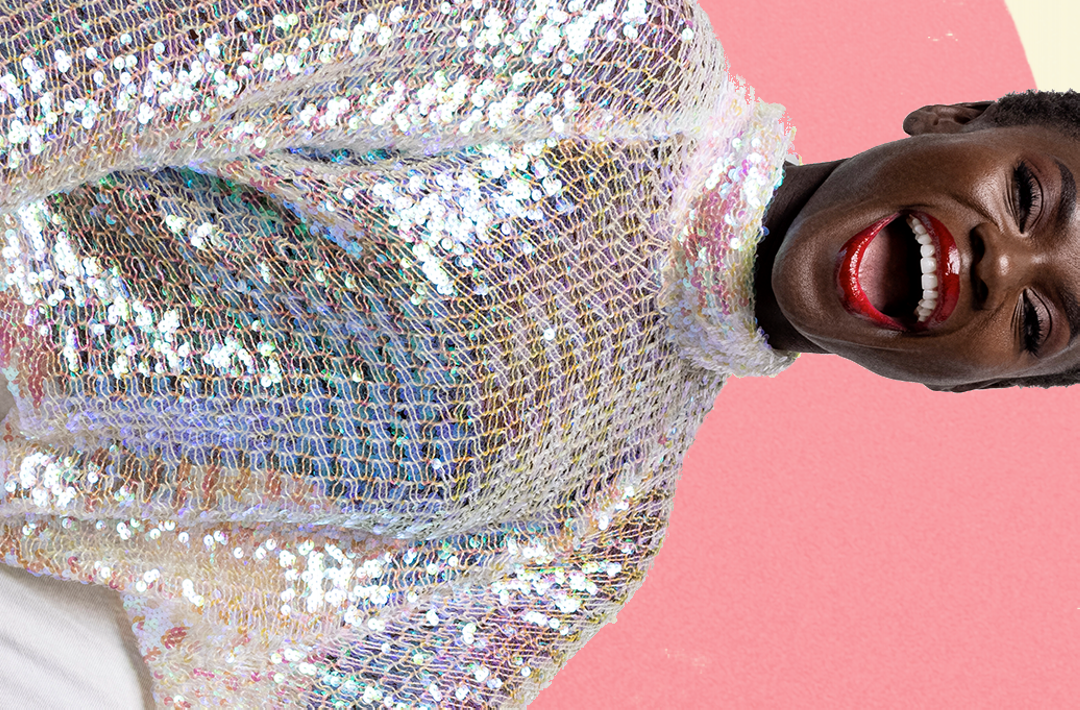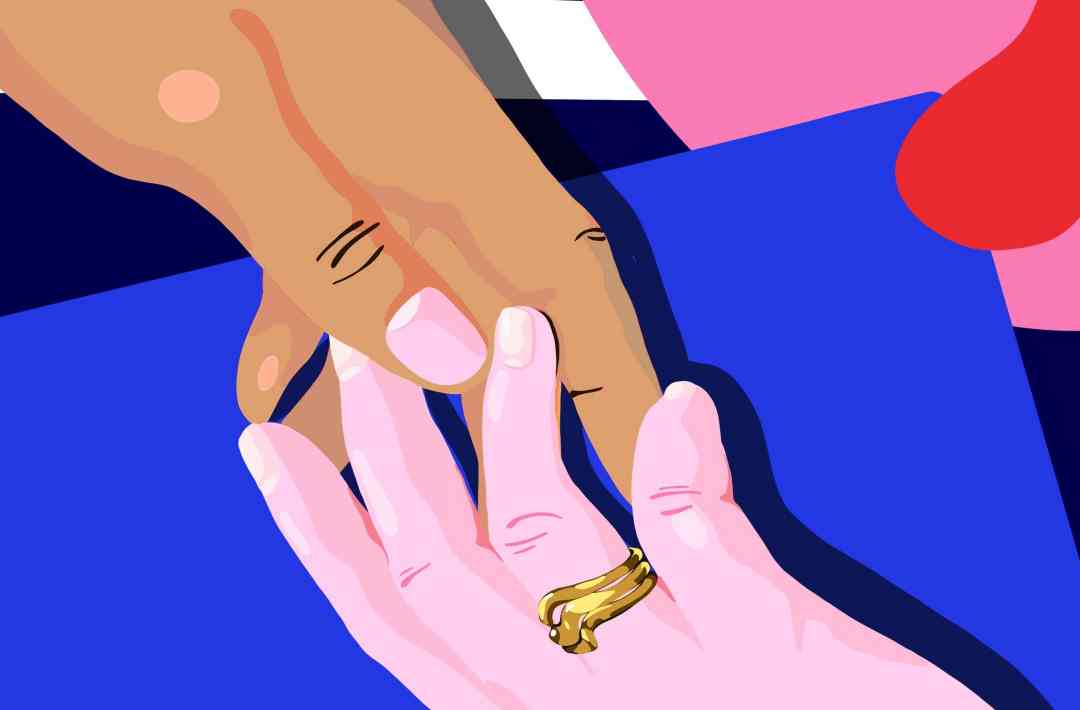
I remember the meeting the SELF health team had before I really grasped that COVID-19 was going to be…well. What it became. The meeting was on what would become one of our last days in the office before we packed up and started working from home “out of an abundance of caution.” (For a few weeks, we thought. Or months, tops. Well…hi from my bed nine months later.) Our editors put it plainly: This disease caused by a novel coronavirus was becoming a thing and we needed all hands on deck to help cover it. So we brainstormed. We planned. We got our assignments. We started writing about COVID-19.
Admittedly, I remember thinking—somewhat petulantly, tbh—that I didn’t want to take a break from my main beat (mental health) to write about handwashing and social distancing and infectious diseases. Obviously, the joke was on me. Little did I know that the COVID-19 pandemic would provide me with ample opportunity to write about mental health. Way too many opportunities, even. For the past nine months, depression and anxiety have become part of our collective baseline. People have needed—and still need—help dealing with all the mental health challenges that have come with isolation, grief, anxiety, uncertainty, and everything else the pandemic hath wrought.
Though the end of 2020 doesn’t mark the end of our pandemic mental health struggles by any means, I wanted to take the opportunity to reflect back on some of the most important mental health tips I’ve gotten this year anyway. It’s hard not to, after spending the majority of 2020 talking to mental health professionals and reflecting on my own experiences. Here are the lessons I’m going to bring with me into 2021 and hope you do, too.
1. Switch up and adapt your coping mechanisms as needed.
This has always been my self-care philosophy—that self-care is a moving target that you need to adapt for often—but this year really drove the point home. So many of my mental health management skills became obsolete in the face of the pandemic. Either they weren’t accessible for safety reasons or they stood no chance against the reality of COVID-19. So I had to find new ones.
If there’s one overarching mental health tip that feels more important than ever, it’s this: How to best take care of yourself is an ongoing challenge, especially during (sorry) unprecedented times, and you have to learn and experiment and change as you go.
2. Find things you can control when everything feels uncontrollable.
A refrain that I heard again and again from mental health professionals this year: Uncertainty is at the root of so much of our distress this year. Uncertainty about the future, uncertainty about our relationships, uncertainty about our safety, uncertainty about our own emotions and experiences. Long story short, we don’t do well with it.
All year, therapists urged us to focus on what we could control. For coronavirus anxiety, they said to concentrate on what we can do as individuals, like wear our masks and social-distance. Prior to the election, therapists suggested we stop checking the news so much and instead put our energy into registering to vote, volunteering, and other actionable steps. Hell, I even synthesized these tips into a coping mechanism that’s been working for me: creating things I can control when I can’t find them naturally. So as uncertainty continues into the new year (Will people get the vaccine when they’re able to? Will Trump have to be forcibly removed from the White House?), keep control in your toolbox however you can.
3. Set a low damn bar.
Unfortunately, in a year when we’ve needed to look after our mental health way more than usual, looking after our mental health also felt way more exhausting. One general rule that’s stayed relevant for months is the importance of setting a low bar when it comes to self-care expectations. This requires a whole lot of self-compassion, don’t get me wrong, but it’s worth it. If you need some ideas, I wrote about ways to go easy on yourself earlier in the pandemic here, and I still need these reminders to this day. Speaking of setting a low bar…
4. Distraction and denial are okay, actually.
Who among us hasn’t utilized some major escapism this year? Or flat-out denial? They’re such common coping tools for a reason—they’re good and comforting sometimes—and yet we tend to feel guilty about them because they don’t feel as well-adjusted as some alternatives. But therapists reminded me all year that we shouldn’t beat ourselves up for it—and we gave you a lot of ideas here at SELF for how to distract yourself. Like these mobile games. Or entertainment recommendations in our Got Us Through series. Or these romance novels.
Most Popular
- 5 Less Obvious Signs of Seasonal Depression You Should Definitely Pay Attention To
By Maggie O’Neill
- How Gross Is It to Wear New Clothes Without Washing Them First?
By Julia Ries
- Paxlovid Is Super Promising. Why Aren’t More People Getting It?
By Maggie O’Neill
“Denial is a defense mechanism for a reason,” therapist Jor-El Caraballo, LMHC, cofounder of Brooklyn-based therapy practice Viva Wellness, previously told me. “You just have to watch that you don’t use it at the exclusion of other tools.” If you need more convincing, read this article by my colleague Hannah Pasternak, in which she dove into exactly why you shouldn’t feel bad about distracting yourself from the stresses of 2020 (and beyond).
5. But find some way to process all your emotions.
Which is easier said than done, I know. But it is and remains crucial. “When you’re busy numbing out your feelings, your feelings are in the other room doing push-ups,” Caroline Fenkel, DSW, LCSW, executive director of Newport Academy, previously told me. “Then, when you’re done smoking weed or watching Netflix or whatever you were doing to numb out, and you walk into the other room, you’re like, Wait a minute—these feelings are worse than they were before. That’s because you gave them all that time and space to do push-ups.”
Which is all to say: If we don’t periodically give ourselves space to process and grieve and feel all the baggage that continues to come with this pandemic, we are giving that pain a shit ton of time to do push-ups. To learn how to process those emotions, read this article on emotional regulation, this guide to starting a journaling practice, or tbh…half the articles I link to throughout this post. We all process differently, and it doesn’t hurt to have plenty of ideas to choose from.
6. Cut should from your self-talk vocabulary.
This is another therapy trick that I’ve loved for a long time but that became even more relevant amid the pandemic. There was so much messaging about what we should and shouldn’t be doing during the pandemic (throwback to when I convinced myself I should use the pandemic to write another book, LOL) and should and shouldn’t be feeling. And all that does is make us feel guilty and ashamed and inadequate—which is why therapists continue to recommend interfering when you catch yourself should-ing yourself.
There’s more to it than that, of course, including how to actually resist the siren song of should. I touched on it in this early pandemic article, right when my inner voice was full of shoulds.
7. Learn skills to deal with common cognitive distortions.
Humans fall into mental traps known as cognitive distortions all the time, pandemic or not, but oh boy, did a few cognitive distortions have a field day in 2020. Namely, catastrophizing (when you assume the worst will happen), all-or-nothing thinking (when you think—and worry—in absolute terms), and future telling (when you convince yourself you know how things will work out despite not having proof). Just to name a few.
Why this year? “Because our anxiety baseline is so high right now, for understandable reasons, we are overestimating threat and falling into all-or-nothing thinking,” Andrea Bonior, Ph.D., licensed clinical psychologist and author of Detox Your Thoughts: Quit Negative Self-Talk for Good and Discover the Life You’ve Always Wanted, told me for an article about dealing with all our existential pandemic anxiety. “Even if there’s truth to a thought—like there’s a chance of infection if you go to the grocery store—not all thoughts that are partly true are functional and helpful.”
Most Popular
- 5 Less Obvious Signs of Seasonal Depression You Should Definitely Pay Attention To
By Maggie O’Neill
- How Gross Is It to Wear New Clothes Without Washing Them First?
By Julia Ries
- Paxlovid Is Super Promising. Why Aren’t More People Getting It?
By Maggie O’Neill
Anyway, these thought patterns are the target of cognitive behavioral therapy (CBT) and let me tell you, CBT exercises came in real handy this year and I don’t see that changing. Incidentally, that article I linked to above is full of tips on getting started, and there are a few workbooks in this roundup that can get you started, too.
8. Take things one day at a time if you need to.
Okay, I know that “taking things one day at a time” and “focusing on the present” are really annoying platitudes, and that’s not what I mean. I mean strategically ignoring the future so you don’t spiral out about all of the uncertainty in the world or all the ways COVID-19 has set fire to your life.
As I wrote in this article where I reminded myself (and others, but definitely myself) that it’s okay to press pause on future planning in order to cope with the present, sometimes you need to embrace a sense of tunnel vision where you only look as far ahead as the next month, or the next week, or the next day, or the next hour. Tunnel vision can continue to keep you afloat, especially as we enter a whole new year. Because I don’t know about you, but after 2020, I’m already overwhelmed thinking about what 2021 might hold. So I’m not going to think about it yet.
9. Don’t “gratitude-shame” yourself.
So many people have grappled with guilt and shame throughout the year about their relative safety, security, or privilege. With everything going on—and the magnitude of tragedies many people have experienced—it’s hard not to. But therapists will remind you time and time again that not a lot of good comes from telling yourself you should (there’s should again!) be grateful things aren’t worse when you really don’t feel it.
Though the concept wasn’t new to me, I actually only recently heard of this phenomenon referred to as “gratitude shaming” by Sahaj Kohli, founder of Brown Girl Therapy. She wrote, “Gratitude shaming is when we shame ourselves, or others, to feel grateful rather than what we’re actually feeling—which might be much more complex or nuanced.”
Not only does gratitude shaming invalidate our feelings and keep us from dealing with them, but it also kicks off a never-ending spiral. Dr. Bonior pointed out to me in one of our interviews that things can always be worse, and it’s not helpful to get caught in an endless loop of telling yourself you don’t deserve to be in pain because other people are in more pain.
10. Create things to look forward to.
A major side effect of all the uncertainty still swirling around: “What the heck do we have to look forward to?” “Many of us are wanting to plan our [holidays], birthdays, weddings, et cetera, but feel stuck in not knowing what is to come,” Vernessa Roberts, LMFT, told me at the beginning of the pandemic…and it still feels extremely true. “It creates this dreadful feeling of having nothing to look forward to because we are uncertain of what is coming.”
Most Popular
- 5 Less Obvious Signs of Seasonal Depression You Should Definitely Pay Attention To
By Maggie O’Neill
- How Gross Is It to Wear New Clothes Without Washing Them First?
By Julia Ries
- Paxlovid Is Super Promising. Why Aren’t More People Getting It?
By Maggie O’Neill
It’s an ongoing struggle to keep creating new things to look forward to when our normal things are out of reach, but it’s worth it. Here’s my advice for that.
11. Stay up on basic self-care if you can. Ugh.
It pops up in every “mental health tips” article I write. You probably expect it to pop up in every mental health article you read. That’s because the fundamentals—the physiological needs humans have like sleep, food, water, and exercise—are so freaking important. Not only for the obvious reasons (staying alive) but because when those things are out of balance, everything feels worse. It exacerbates your emotions. It lowers your functioning. It just makes everything harder. Which isn’t to say this stuff isn’t hard too. But we owe it to ourselves to try the best we can.
12. Take advantage of resources and communities.
One silver lining, if you want to call it that, of this pandemic is that a lot of mental health services have moved online. And while there are still plenty of barriers to access and systemic issues standing in the way of equitable mental health care, there’s no denying that some people who couldn’t or wouldn’t seek out help now have for the first time because of these virtual options. Learn more about online support groups here and virtual therapy here.
Similarly, while it’s still difficult to make new friends and socialize, the pandemic has normalized and even created more opportunities to connect with people online. Plus, a lot of people now feel more comfortable expressing that they’re actively and desperately seeking more human connection, deeper bonds, and social outlets. These feelings were valid before the pandemic, of course, but there was arguably more stigma around talking about it and acting on it.
13. Remember: We haven’t “adjusted to the new normal,” not really.
You’re not alone if you’ve reached a point where you’re feeling a little…desensitized? Or at least convinced that you should be “used to” life during a pandemic, given that we’ve been at this for nine months. But it’s incredibly important to continue to remind yourself that getting past the initial shock and learning to make the necessary adjustments aren’t excuses to beat up on yourself for struggling. Because what does getting used to something really mean, anyway?
I think Dr. Bonior put it best when I interviewed her for this article. “It’s like permanently having a rock in your shoe,” she said. “Sure, you might get used to it being there, but that doesn’t mean it doesn’t still hurt every time you walk.”
Plus, mental health experts will be the first to tell you that you can’t predict how this will impact you long-term. Mental health and trauma—because that’s what many of us are experiencing—have no timeline. So you must continue having compassion for yourself every day and shut out messages that try to shame you for not acclimating to this ongoing and incredibly difficult reality.
To close out, I’d like to share some other highlights from SELF’s pandemic mental health coverage so far.
Given this article was a recap of the main lessons I learned while reporting and writing about mental health this year, I mostly pulled from my own work. But my colleagues here at SELF and our freelancers did incredible work this year, full of tips and lessons that you should carry with you into the new year. Here are just some you should read and bookmark for when you need them. Because above all, this year has taught us that we will need all the help and coping mechanisms we can get.
Most Popular
- 5 Less Obvious Signs of Seasonal Depression You Should Definitely Pay Attention To
By Maggie O’Neill
- How Gross Is It to Wear New Clothes Without Washing Them First?
By Julia Ries
- Paxlovid Is Super Promising. Why Aren’t More People Getting It?
By Maggie O’Neill
Further reading:
- We’re Basically All Struggling With Mental Health Right Now—Let’s Normalize It
- If Depression and Anxiety Are ‘Normal’ Right Now, When Should I Be Worried?
- How Do We Even Grieve Right Now?
- 6 Therapist-Approved Tips for Living With All This Uncertainty
- 8 Grounding Techniques to Try When You’re Spiraling
- 44 Mental Health Resources for Black People Trying to Survive in This Country
- How to Be Hopeful, Even When It’s Really, Really Hard
- How a Good Day and Bad Day Plan Might Help You During the Pandemic
- Feeling Lonely? Here’s How to Deal
- Anti-Asian Racism Is Taking a Mental and Emotional Toll on Me
- What Is Resilience, and Can It Help Us Bounce Back From This?
- 8 Black Therapists on Their Best Advice for Coping Right Now
- 23 Ways to Feel Like Time Has Meaning These Days
- What to Do If You’re Anxious About Reentering the World
- How to Tell If Your Shortness of Breath Is From Anxiety or Coronavirus
- 8 Coping Methods From a Psychiatrist Who’s Also Anxious and Afraid
- The Healing Powers of Gratitude
- 4 Small Ways to Practice Gratitude Every Day
- 9 Books by Black Therapists to Help You Process Your Emotions
- 10 Ways to Resist the Urge to Self-Harm
- 14 Black LGBTQ+ Folks on How They’re Taking Care of Themselves Right Now
- How to Know If You’re Drinking Too Much Right Now
- If You’ve Ever Googled ‘How to Stop Crying,’ Read This
- 5 Ways I’m Centering My Black Joy and Protecting My Peace
- There Has Never Been a Better Time to Start Meditating
- 5 Little Habits I Picked Up During Quarantine That I’m Not Mad At
- 21 Smart Ways Parents Are Finding Alone Time Right Now
- 18 Low-Lift Things That Might Actually Make You Feel Better Right Now
















